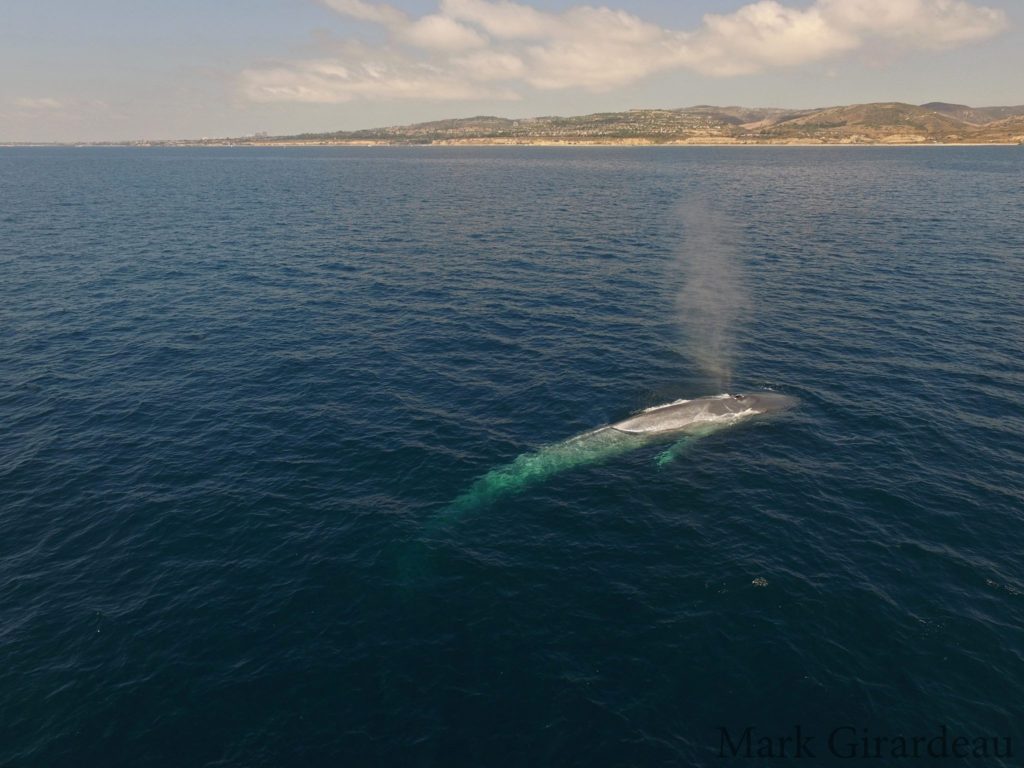A Whale of a Summer

If you happen to be walking along the beach or one of our blufftop trails sometime this summer, take a moment to gaze out to the horizon. If you take enough time to patiently wait, you’ll be amazed at what you can see. Can you spot the enormous 30 foot high spout off in the distance? Or the aquamarine blue 25-foot wide fluking tail? Then you’ve caught a glimpse of the blue whale, the largest animal on the Earth.
Because blue whales are so large, its hard to imagine the dimensions of such an animal. Balaenoptera musculus belongs to the baleen family, so named for the long thin plates, around 800, which hang from their mouths and allow them to strain water and catch their diet of krill. They consume about 9000 pounds of krill a day. These majestic creatures measure in at about 90 feet, about the size of 3 school buses. Their hearts are the size of a small car, big enough for a child to walk through. Their tongue alone weighs as much as a full grown elephant!
Jess Roame, an educator with our partner Newport Landing Whale Watching, noted that local whale watching boats have reported almost daily sightings of blue whales this summer. They spend between late May and September in the area feeding.
While blue whales once roamed freely and widely, the peak of commercial whaling in the 19th and early 20th centuries as well as the advent of powerful harpoon guns majorly diminished the population to scarcity. By 1966 the International Whaling Commission declared them protected, and today they are still considered an endangered species. The whales have slowly rebounded since then, and today we are fortunate to have the largest concentration of blue whales in the world off our coast; about 2000. However, continued threats to the population still persist, including collisions by marine vessels, entanglement in fishing gear, and reduced food due to habitat degradation.
Always remember to cut down or eliminate usage of single-use plastic waste to protect our oceans. Plastics break down into microplastics, which are then ingested by aquatic life, and are damaging to their health. It’s one of the easiest things we all can do to help protect our environment.
Take a local whale watching cruise with our partners at NewportWhales.com and pay a visit to our large blue friends.
